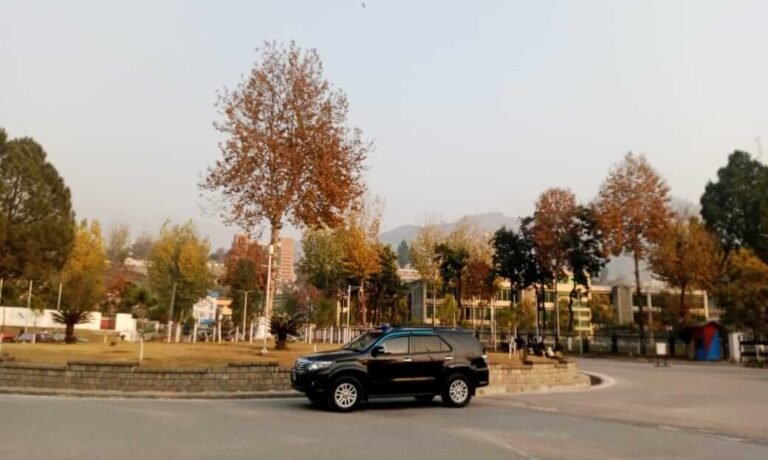Education on Trial: Questioning the Commercialization of Learning in Pakistan-administered Jammu Kashmir

Written by Waheeda Jammu Kashmiri
A growing movement in Pakistan-administered Jammu and Kashmir is challenging the status quo in education. Parents and activists are voicing their concerns over skyrocketing fees and the ever-increasing commercialization of what many believe should be a fundamental human right. But why is education turning into a profit-making venture, and what role does the government play in this transformation?
Rising Concerns Over Private School Fees
Across the region, organizations like the United Parents Educational Community Kotli and the Rawalakot Parents Community are stepping forward to question the legitimacy of exorbitant fee hikes imposed by private schools. Families are finding themselves burdened with costs that seem to rise with every new academic session. When should education be a business, and when should it simply be accessible to everyone?
Parents argue that the financial pressure is forcing many to consider government schools as a viable alternative. The growing number of hidden charges—ranging from monthly fees to expenses for textbooks, copies, and uniforms—raises a critical question: Is the private education system serving the needs of our communities or simply lining the pockets of a few?
The Business of Learning: A Question of Priorities
The current educational environment shows a disturbing trend where every element of schooling appears to be commercialized. New sessions see the introduction of additional textbooks and updated syllabuses that drive up costs. Not only do private schools charge high tuition fees, but they also impose regular surcharges that leave parents wondering about the true intentions behind these policies.
Should education be a commodity sold to the highest bidder, or is it a public good that must be preserved for future generations? Activists and concerned citizens argue that turning education into a business undermines its very purpose. It prompts us to ask: Are government policies complicit in this trend, or do they have the power to reverse it?
Demanding Accountability and Transparency
In response to these mounting issues, the movement is calling for the establishment of government committees designed to bridge the gap between parents and teachers. Such measures would ensure a system of checks and balances that could hold both private institutions and government bodies accountable. The pressing question remains: Why hasn’t the government taken stronger steps to protect the public from these financial strains?
The proposed committees would work to improve the quality of public education, offering a transparent alternative to the costly private sector. If education is indeed a right, shouldn’t it be available to all, regardless of economic background?
A Public Gathering for Change
A significant public gathering is scheduled for March 21 at Boys Degree College Kotli, immediately following Friday prayers. This event is expected to be a pivotal moment for the movement, as parents, students, and concerned citizens come together to demand accessible and affordable education. The gathering challenges not only private institutions but also questions the government’s role in allowing education to become increasingly commercialized.Why is it that, even as families struggle with rising fees, the necessary reforms seem so distant? The answer may lie in the complex interplay of politics, economic interests, and the oversight—or lack thereof—by those in power.
The Call for a New Direction
Prominent activist Sardar Khizar Abbas from Tattapani, a member of the Jammu Kashmir Liberation Front, has sharply criticized the current approach to essential services. His statement, “No more business on health and education,” encapsulates the frustration shared by many. His words challenge both the private sector and the government: When will our leaders prioritize the welfare of the people over profit?
This movement is a call to action—a demand for a reassessment of priorities that have long skewed towards commercial gain. It raises important questions about accountability: Are the authorities truly working for the benefit of the community, or have they allowed privatization to dictate the course of our future?
The debate over education in Pakistan-administered Jammu Kashmir is more than just a local issue—it strikes at the very foundation of what society values. As the movement for free and quality education gains momentum, it forces us all to consider whether our current path is sustainable. Can we continue to accept an education system that places a heavy financial burden on families, or is it time for a fundamental change?
The challenge now lies in ensuring that every child has the opportunity to learn without the constraints of high costs. With parents, activists, and concerned citizens raising their voices, the call for accountability and transparency in education is louder than ever. The pressing questions remain: Will our leaders act to safeguard this fundamental right, or will the trend towards commercialization continue unchecked?
About Author

Latest News!
 Opinion11/07/2025Pakistan Army Encroachments in Datot: How Militarization Threatens Women, Land, and Community Rights
Opinion11/07/2025Pakistan Army Encroachments in Datot: How Militarization Threatens Women, Land, and Community Rights Opinion11/06/2025How Pakistan’s ‘Open Merit’ Policy Is Erasing Kashmiri Identity
Opinion11/06/2025How Pakistan’s ‘Open Merit’ Policy Is Erasing Kashmiri Identity News07/01/2025The Zarnosh Naseem Case
News07/01/2025The Zarnosh Naseem Case Opinion05/13/2025Remember 13 May: Pakistan Killed 3 Kashmiris in Muzaffarabad
Opinion05/13/2025Remember 13 May: Pakistan Killed 3 Kashmiris in Muzaffarabad







One Comment